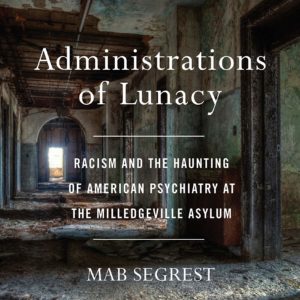
Administrations of Lunacy: Racism and the Haunting of American Psychiatry at the Milledgeville Asylum
By Mab Segrest (NHC Fellow, 2017–18) Today, 90 percent of psychiatric beds are located in jails and prisons across the United States, institutions that confine disproportionate numbers of African Americans. After more than a decade of research, the celebrated scholar and activist Mab Segrest locates the deep historical roots of this startling fact, turning her … Continued


